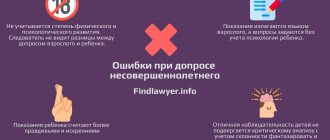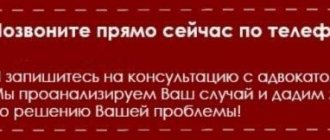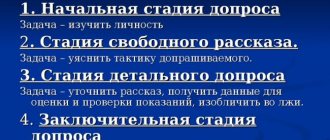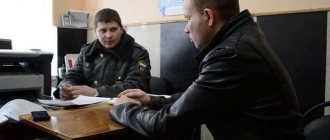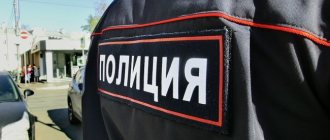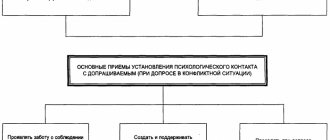1. Charges must be brought against a person no later than 3 days from the date of the decision to charge him as an accused in the presence of a defense lawyer, if he is involved in a criminal case.
2. The investigator notifies the accused of the day of arraignment and at the same time explains to him the right to independently invite a defense attorney or to petition for the investigator to ensure the participation of a defense attorney in the manner established by Article 50 of this Code.
3. The accused, who is in custody, is notified of the day of arraignment through the administration of the place of detention.
4. The accused, who is at large, is notified of the day of arraignment in the manner prescribed by Article 188 of this Code.
5. The investigator, having verified the identity of the accused, announces to him and his defense attorney, if he is participating in the criminal case, a resolution to bring this person as an accused. At the same time, the investigator explains to the accused the essence of the charge, as well as his rights provided for in Article 47 of this Code, which is certified by the signatures of the accused, his defense attorney and the investigator on the resolution indicating the date and time of filing the charge.
6. If the accused or his defense attorney fails to appear at the time appointed by the investigator, as well as in the case where the location of the accused is not established, charges are brought on the day of the actual appearance of the accused or on the day of his arrest, provided that the investigator ensures the participation of the defense attorney.
7. If the accused refuses to sign the resolution, the investigator makes a corresponding entry in it.
8. The investigator hands the accused and his defense attorney a copy of the decision to charge this person as an accused.
9. A copy of the decision to bring the person as an accused is sent to the prosecutor.
Confidentiality of information
The Criminal Code of the Russian Federation prohibits the dissemination of information about children who have suffered as a result of a crime. The ban applies to any information: personal data, photographs, video materials, voice recordings. It is especially important to maintain confidentiality when a minor has been the victim of sexual assault. By introducing such restrictions, legislators pursued one goal - to protect the child from attacks from the environment and ridicule of peers.
Failure to comply with the ban entails serious consequences: from a fine (150-350 thousand rubles) to imprisonment for a period of 5 years. According to Part 3 of Article 137 of the Criminal Code of the Russian Federation, public speaking or publication of facts in the media can serve as illegal dissemination of information.
Duration of interrogation
Unlike adults, minors can participate in interrogation for a strictly limited time, since it requires mental stress.
During interrogation, the attention of children and adolescents gradually loses concentration and disperses. They become inattentive, which affects the reliability of the testimony. There are restrictions on the time of investigation with children under 16 years of age, which depend on the age of the interrogated (clause 1 of Article 191 of the Code of Criminal Procedure of the Russian Federation):
- up to 7 years – up to 30 minutes without a break, up to 1 hour per day;
- 7-14 years – up to 60 minutes without a break, up to 2 hours a day;
- 14-16 years old – up to 2 hours without a break, up to 4 hours a day.
If a witness or suspect is over 16 years old, but has mental disabilities or is developmentally delayed, then he is also interrogated for no more than 2 hours without a break and no more than 4 hours a day (Clause 1 of Article 191 of the Code of Criminal Procedure of the Russian Federation).
At his own discretion, the investigator or interrogating officer has the right to introduce short breaks not regulated by law, taking into account the age, mental and emotional state, and behavioral characteristics of the children.
Time and place
According to Art. 187 of the Code of Criminal Procedure of the Russian Federation, the interrogation is carried out at the place of preliminary investigation - this is the investigator’s office. The working environment is maintained in the office: the absence of objects that distract attention, as well as noise stimuli (telephone, radio, etc.).
The investigator has the right to conduct investigative actions at the location of the interrogated person. The interrogation may last continuously for no more than 4 hours. After this, a break of at least 1 hour is taken to rest and eat.
After a break, the investigative action may be continued, but the total duration of the interrogation during the day should not exceed 8 hours. If there are health problems, the duration of the interrogation is determined based on the doctor’s opinion.
Legislative regulation
You may be interested in:Determinants of crime are... Causes of crime
In our country, interrogation is regulated by the Code of Criminal Procedure of the Russian Federation. In particular, you need to refer to Chap. 26 of this act. The following articles will be specific:
- Art. 173-174. About the interrogation of the accused.
- Art. 189. Contains general rules for conducting interrogation by an authorized person.
- Art. 205. How does the interrogation of an expert proceed?
How to behave during interrogation by an investigator
Simple rules will help you think through your behavior in advance when communicating with an authorized person:
- Determine your position for the period of interrogation in advance and strictly follow it;
- remain calm, do not complain about the lack of time and the need to come to the department, speak to the point;
- speak politely and calmly, do not use profanity;
- do not provoke conflict - do not behave vulgarly, defiantly, inappropriately;
- carefully study the protocol and write down in the comments any violations found.
The protocol records the date of the interrogation, the time of its beginning and end, accurate to the minute, and the names of all persons present. Read the protocol carefully. If the investigator recorded your words with a distortion of meaning, ask him to make changes.
If the investigator refuses to correct the record, record this in your comments and indicate what you actually said. Sheets with comments are attached to the protocol. Information about their presence is entered in the “remarks” line in the protocol. The number of pages and content of comments are also indicated there. Indicate the phrases that begin and end your text with comments.
Important! All blank spaces in the protocol are crossed out at the end of the interrogation.
In what cases are they called in for additional questioning?
After the interrogated person has given evidence, the investigator analyzes the information received. To identify contradictions and inaccuracies in testimony, as well as to clarify details, a re-interrogation procedure is sometimes used.
During repeated interrogation, the investigator asks the interrogated questions about the circumstances of the case that were already raised during the previous investigative action. This type of interrogation is also used to convince the interrogated person to change the negative position he has taken in relation to the investigation.
Additional interrogation differs from repeated interrogation in its task - to fill in information. During this session, the person being interrogated is asked to testify about facts that were not raised during previous interrogations. If the investigation becomes aware of new circumstances of the case, of which one of the respondents may be aware, he will be summoned for additional questioning. Often this type of interrogation includes only a question-and-answer form of conversation.
Goals and objectives of the event
The main goal is to obtain complete, up-to-date and reliable information necessary for the authorized person for the proceedings, investigation and other conduct of the case.
The objectives of the event are classified into two types:
- General - establishing a general truth in a specific matter.
- Particular - finding out specifics regarding certain circumstances that are important for the outcome of the process.
Now let's look at the key varieties.
Rights of a minor's representative
During the interrogation of a minor, the legal representative has the same rights as the interrogated person. He takes over the legal capacity of the child. The basic rights of a legal representative include:
- presence at interrogations;
- familiarization with the protocols of all investigative activities;
- studying the decision on the application of measures against the child;
- participation in any investigative actions with a minor.
A parent or guardian has the right to control the progress of the interrogation, compliance with its rules, and the fulfillment of the rights and obligations of participants in the process. He can reveal the pressure on the interrogated person from the investigator, prosecutor, lawyer and petition for unreliable results of the interrogation.
At the same time, the court and investigator may not allow a parent or guardian to participate in events if their actions harm the interests of their ward (clause 11 of the Resolution of the Plenum of the Armed Forces of the Russian Federation dated February 1, 2011 No. 1). The reasons for this decision may also be:
- refusal to fulfill responsibilities for raising a child;
- their improper implementation;
- ignoring the stages of the investigative process (appearing in court or before an investigator);
- obstructing the investigation;
- abuse of the position of a trustee (coercion to give false testimony, blackmail, threats, etc.).
If the legal representative was notified of the need to appear at investigative measures, but he did not come, the interrogation is carried out without him.
Guardians and parents can play the role of defenders (Article 72 of the Code of Criminal Procedure of the Russian Federation). However, this does not exclude the mandatory participation of a qualified lawyer in the investigative process (Clause 2, Article 49 of the Code of Criminal Procedure of the Russian Federation).
Confrontation and its differences from interrogation
Confrontation is the simultaneous interrogation of two persons who gave contradictory testimony. Contradictions in testimony arise as a result of honest misconception or deliberate misrepresentation of facts. The decision to conduct a confrontation is made by the investigator. The confrontation is carried out after the investigator has issued a resolution.
The main reason for its holding is the presence of contradictions in the essential circumstances of the case. Facts about the place and time of the commission of the crime, the guilt of the accused and the method of committing the crime are considered significant.
The tactics of interrogation and confrontation are different. Interrogation as an investigative action implies psychological interaction between the investigator and the person giving evidence, and excludes the presence of persons distracting the interrogated person from giving evidence.
The confrontation takes place after the initial interrogation. During the confrontation, the investigator asks the persons between whom it is being conducted whether they know each other and what kind of relationship they have. Those interrogated take turns giving evidence on the controversial circumstances of the case. After giving testimony, the investigator asks questions, if necessary. Persons between whom confrontations are being conducted may ask each other questions, with the permission of the investigator. (Article 192 of the Code of Criminal Procedure of the Russian Federation).
